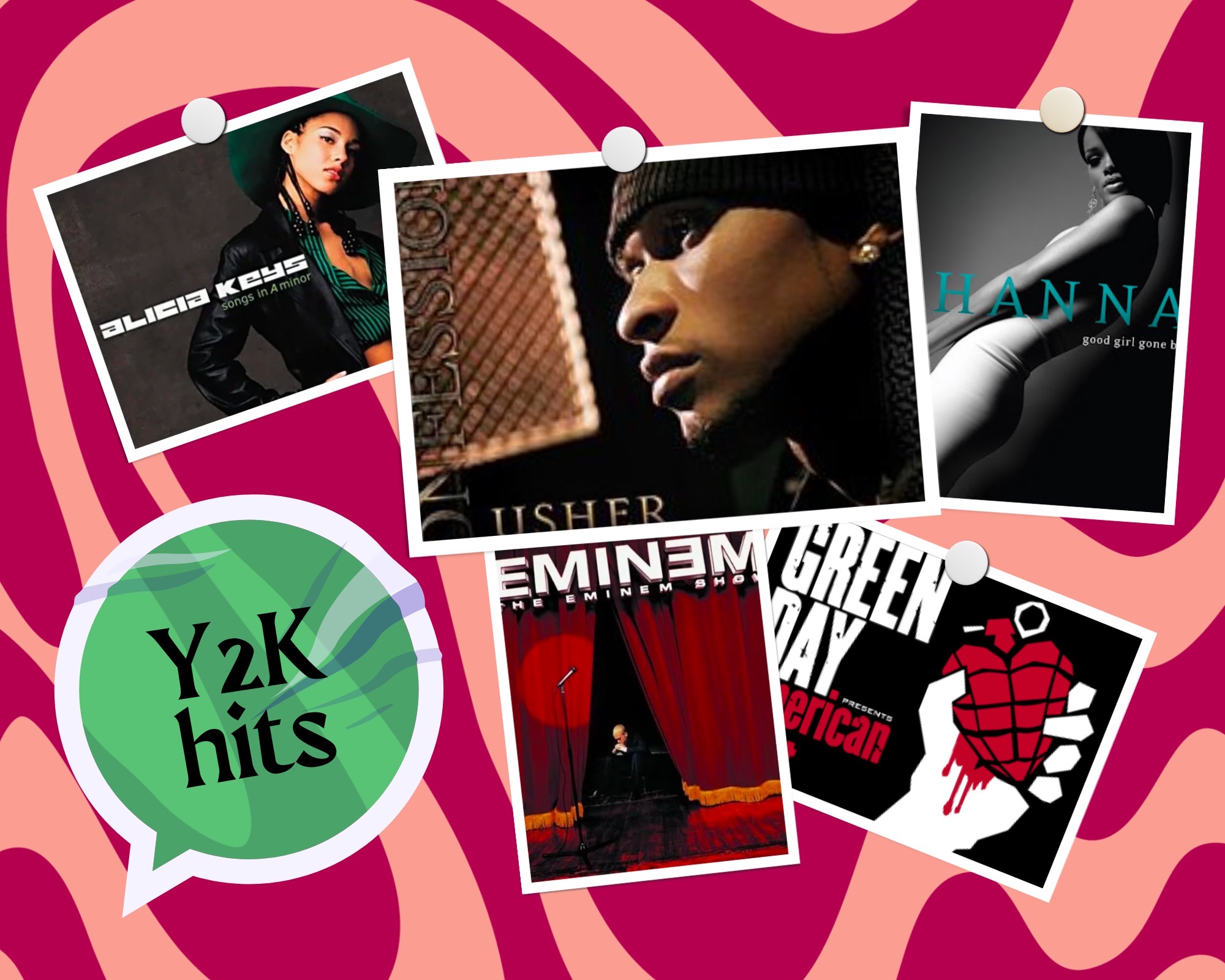Welcome to Y2K Hits, a column committed to exploring the most popular albums of the 2000s and the lasting marks they left on the music industry and pop culture at large.
Coming off the success of his third studio album “8701”, Usher looked to continue making waves in the music industry. Tracks from the album like “U Remind Me” and “U Got It Bad” certainly made their marks in mainstream industry, both topping the charts in 2001. However, “Confessions” would take Usher’s superstardom to the next level: the so-called king of R&B began to live up to his moniker and ascended into the pantheon of modern R&B artists.
In the moment, “Confessions” provided listeners with some of the most memorable cuts of the time period. The album provided four No. 1 singles on the charts and two of the top ten overall songs of the year. It also saw considerable commercial success: “Confessions” remains the 21st century’s best-selling R&B album from a male vocalist.
There doesn’t seem to be much carryover from this album to modern-day R&B from the outside looking in. With few exceptions, the songs don’t feature heavy production, but instead try to highlight melodies through voice. Upon further and more detailed inspection, though, it’s possible to see the indelible mark left by certain tunes in the album.
The album starts with one of the most famous crunk songs of all time: “Yeah!,” featuring Lil Jon and Ludacris. The synth instrumentation, which features keyboard and bass prominently, provides the backbone of the song’s iconic beat. Rhythm changes throughout the song, most notably with Ludacris’ verse, keep the song interesting despite its rather long length. Usher’s and Lil Jon’s shouted refrains give the track an elevated energy. While it may not contain the ballads seen on the rest of the album, the song contains everything needed for a legendary club tune, and has overall stood the test of time.
Modern R&B has merged itself heavily with hip-hop, resulting in heavier basslines, more rhythmic flows and faster tempos. However, in the early-mid 2000s this was only starting to come to form. Tracks like “Yeah!,” “Throwback!” and “Caught Up” pushed the boundaries of R&B, allowing more artists in the genre to produce more upbeat songs that differed from the slow ballads of previous eras.
“Confessions,” the album’s namesake, evokes the opposite feeling of “Yeah!” While lighter on the production side, the song’s melodies are some of the best on the entire album. I think this is some of Usher’s best overall work on the album, as the notes feel precisely placed and the harmonies keep the song from being too repetitive. The change in rhythm in the chorus from more flowing melodicism to a sharper rapping style also keeps the song fresh. Overall, the song is one of my favorite works of Usher, as I believe it uniquely showcases his vocal talent.
“Confessions Part II” features perhaps the best lyrical content on the entire album. The tune is a well-known song in Usher’s discography, and for good reason. The song’s narrative form immediately draws listeners in, as the king of R&B weaves a ballad about cheating, unfaithfulness and having to admit his sins to his partner. Unsurprisingly, many fans attempted to ask more probing questions about the song’s content. Some believed the song was about the fallout from Usher’s relationship with Chili from TLC. The pair dated in 2001 but broke up within just two years. Later, it was revealed that the song was actually about the relationship of Jermaine Dupri, who was the major producer of the album.
“My Boo,” featuring Alicia Keys, also contains a lighter production than what we would commonly see today. Despite this, the snare drum and synth pad vocals provide a good background that meshes seamlessly with the melodies of both artists. The sentimental tone and lyrics add dimension to the tracklist.
Importantly, the album’s themes represented a more dark and sinister side to the king of R&B, who had been portrayed as an innocent heartthrob during his younger days. Showcasing the different dimensions of Usher’s personality certainly created more intrigue around the album. The release of “Confessions” also came at a time when celebrity culture began to arise, with tabloids and magazines capturing the minds of the general public. The combination of these two phenomena spurred a different paradigm for the music industry, where drama, multifaceted personalities and celebrity gossip would mix to market albums.
While I mostly have positive things to say about the album, there are some criticisms that could be levied at it. Occasionally the production could be heavier, and sometimes a blemish here and there would show up, such as the triangle in “Yeah!” Another example is “Burn”, which I feel relies too heavily on the synth pads at some points.
Overall, though, the album showcases Usher at his peak, as “Confessions” allowed the then 25-year old artist to show his versatility and impeccable vocal talent. In just a matter of minutes, the R&B star delved into crunk, pop and soul, while displaying his smooth and sleek voice. It certainly lives up to its reputation as one of the greatest R&B albums of the past 30 years.
Rating: 90/100
Editor’s Note: This article is a review and includes subjective thoughts, opinions and critiques.
